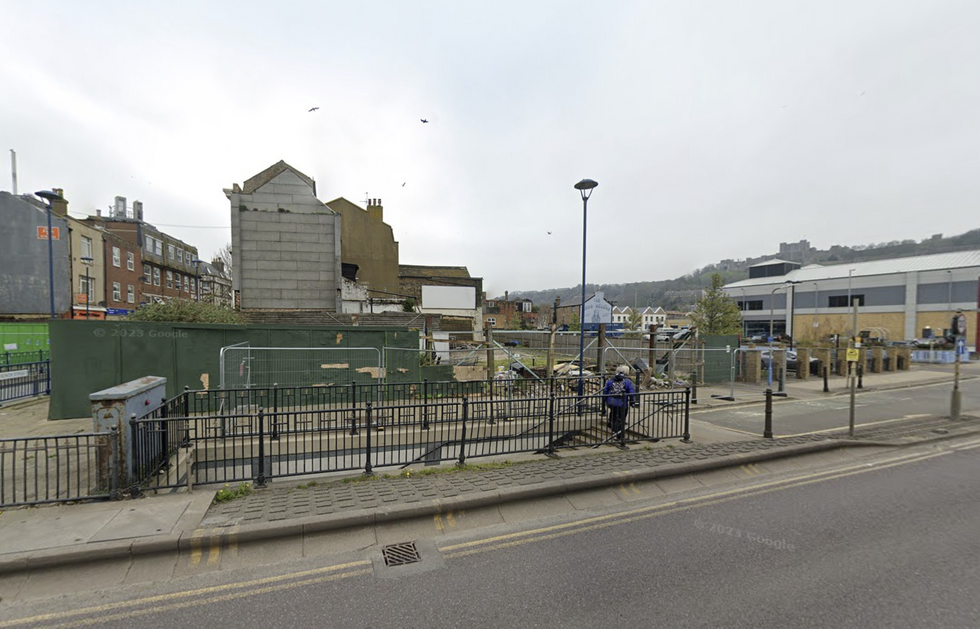Archaeologists uncover 'ancient pub' in incredible discovery at Dover Beacon

Hundreds of clay pipes and German wine bottles were found at the Kent site
Don't Miss
Most Read
An ancient pub has been discovered by archaeologists working at the site of a multi-million pound development.
A pit containing Bellarmine jugs, hundreds of clay pipes and German wine bottles were found by the team of seven at the site of the Dover Beacon project in Kent.
The team from Canterbury Archaeological Trust are digging on Bench Street on the site of a former night club ahead of the development of a new creative and digital hub.
The team added their recent discoveries to a collection of treasures previously found near the site, including a Bronze Age boat found in 1992 and a Medieval spindle wheel, which will be stored in Dover Museum.

The site of the excavation
|Google Maps
Ross Lane from the Canterbury Archaeological Trust, who is heading the dig at the site, told the BBC: "A pit contained lots of refuse material including the clay pipes.
"We think because it was associated with smoking and drinking that a lot of the Bellarmine ware was brought over from Germany containing wine, so perhaps it was the backyard of a public house that was fronting onto Bench Street."
Deputy leader of the council Jamie Pout, said he was excited about the discoveries at the site.
He said: "Finding another Bronze Age boat would be something wouldn’t it?" adding he was standing “right by where it was found...To think about some really historic things that were going on right here is quite special, but we would love to get something quite attractive and iconic going here as soon as possible."
LATEST DEVELOPMENTS
An artist's rendition of The Dover Beacon project
|Lee Evans Partnership
The Dover Beacon project was awarded £3.2million from the Government's Future High Street Fund and £18.1million Levelling Up money.
It will house education studios as well as start-up space and a business centre. The local authority, Dover District Council, hopes it will bring £90m worth of economic benefit to the area.
Meanwhile. archaeologists and military veterans have uncovered a “unique” clearance trench on the site of a field hospital on the Waterloo battlefield. Veteran support charity Waterloo Uncovered is carrying out a targeted excavation at Mont-Saint-Jean farm in Belgium, which served as the Duke of Wellington’s field hospital during the battle in 1815.
A previous excavation at the same site in 2022 found the remains of horses, amputated limbs and a lone soldier laid to rest together in what is now the farm’s orchard.
A week of excavation this month has now uncovered a purposefully dug pit which experts said was likely designed to quickly clear the hospital of gore after the battle.
It contains deposits of human and animal remains separated by a barrier of ammunition boxes stripped from soldiers’ leather satchels.
Archaeological director Professor Tony Pollard, of the University of Glasgow, said: “I can’t think of any other site that has this combination of elements – it’s truly unique, within Napoleonic archaeology and beyond.










